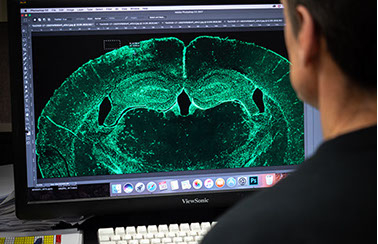ABOUT OUR WORK
This research is executed through a unique, adaptive, and collaborative, international clinical research network. This network directly affects force readiness by advancing clinical practice and informing health policy for military personnel. In collaboration with partners from the Department of Defense (DoD), academia, government, and industry, these investigations support a broad clinical research portfolio within the Military Health System. From observational, longitudinal cohort studies to field-based interventional trials to evaluation of long term health outcomes, we conduct protocols that address critical knowledge gaps in the control and prevention of infectious disease in the military. Study outcomes have far-reaching implications for public health and disease prevention beyond military communities.
INFECTIOUS DISEASE CLINICAL RESEARCH PROGRAM (IDCRP)
The Infectious Disease Clinical Research Program (IDCRP) was founded in 2005 under an interagency agreement between USU and the National Institute of Allergy and Infectious Diseases (NIAID). The program’s work is executed through a unique, adaptive, and collaborative, international clinical research network. This network directly affects force readiness by advancing clinical practice and informing health policy for military personnel.
In collaboration with partners from the Department of Defense (DoD), academia, government, and industry, IDCRP supports a broad clinical research portfolio within the Military Health System. From observational, longitudinal cohort studies to field-based interventional trials to evaluation of long-term health outcomes, IDCRP conducts protocols that address critical knowledge gaps in the control and prevention of infectious disease in the military. Study outcomes have far-reaching implications for public health and disease prevention beyond military communities.
More information about IDCRP can be found here: https://idcrp.usuhs.edu/about
Center for Health Services Research (CHSR)
The CHSR is a requirements-driven initiative developed in direct response to the 2014 Military Health System (MHS) Review to address healthcare service utilization rates, provider practice, patterns of care, financing structures and readiness for the MHS. As an approximately $53 billion per year health system, health services research capacity is an essential contribution to informing and reforming the overall MHS. Our goal is to ensure evidence-informed policy and decision-making for the MHS. We aim to accomplish this goal through the three components: Research, Education and Training, and Support Services.
- Education and Training : Providing training opportunities for those who support military Health Services Research (HSR), educating students and faculty in HSR methods, and supporting researcher access to grants and awards.
- Research: Conducting research that measurably supports the MHS strategic goals and objectives and contributes to learning and policy across the MHS; expanding USU's HSR capacity, and becoming recognized as the though leader for military HSR across MHS, DoD, and the Nation.
- Direct Support Services: Responding to requirements and ad hoc queries generated from organizations and units within DoD and the MHS, particularly emerging HA/DHA priorities, and establishing enduring relationships with MHS CHSR customers.
More information about the CHSR can be found here: https://chsr.usuhs.edu/
Military Health Economics & Policy Research Laboratory (MILHEP)
TRANsFORMING THE MILITARY HEALTH SYSTEM THROUGH EVIDENCE-INFORMED POLICIES AND PRACTICES
The Military Health Economics and Policy Research Laboratory (MILHEP) conducts and disseminates full-scope and rapid-response research to enhance understanding of policy levers and system factors influencing effectiveness and efficiency of the Military Health System (MHS) for Uniformed Service Members and their families. We utilize rigorous economic, econometric, and computational methods, grounded in solid theoretical frameworks, to analyze the impacts of crucial health policies and proposals on the health of the military service population, health care delivery and costs, and value within the health system. Our collaborative efforts span multiple disciplines and institutions, with our current foci:
- Mental health policy and services research
- Behavioral health
- Suicide prevention
- Health readiness of U.S. military Service Members
- Impact of MHS’s transformation on healthcare utilization, costs, outcomes, quality of care, healthcare access, patient satisfaction, quality of life and military readiness.
- Workforce analysis
- Economic analysis of pain, traumatic brain injury, and health insurance coverage.
- Value-based care delivery and financing models
- Women’s health
- Veterans’ health
We also offer hands-on training through workshops and individual consultations on contemporary econometric, economic, and causal-inference methods for MHS researchers.


